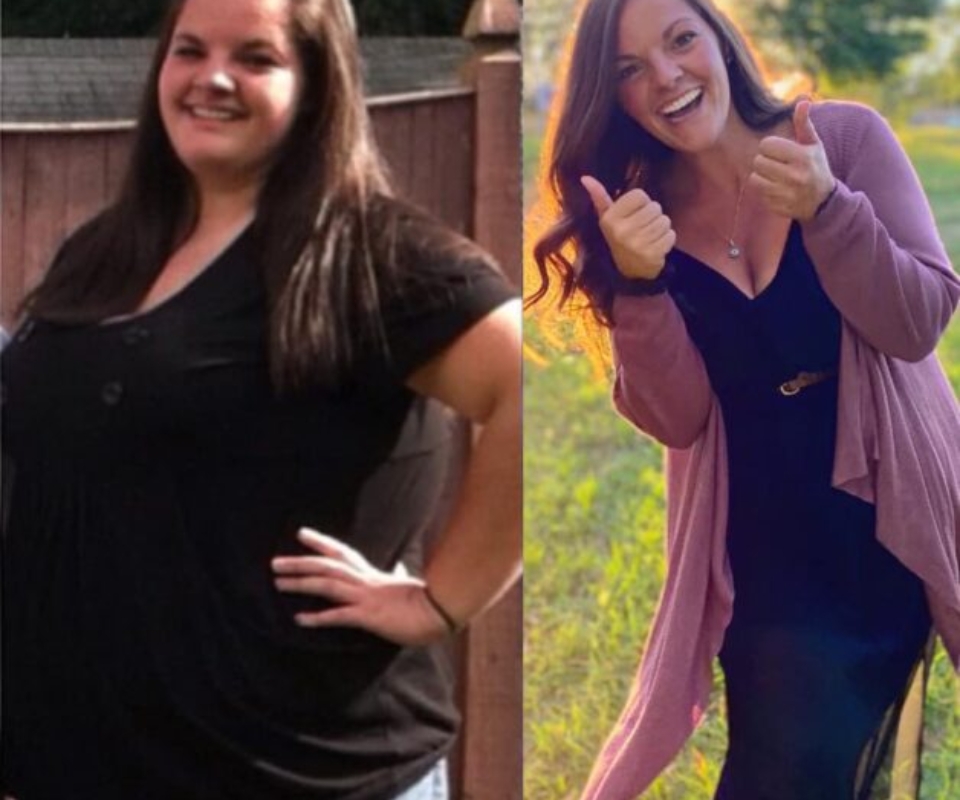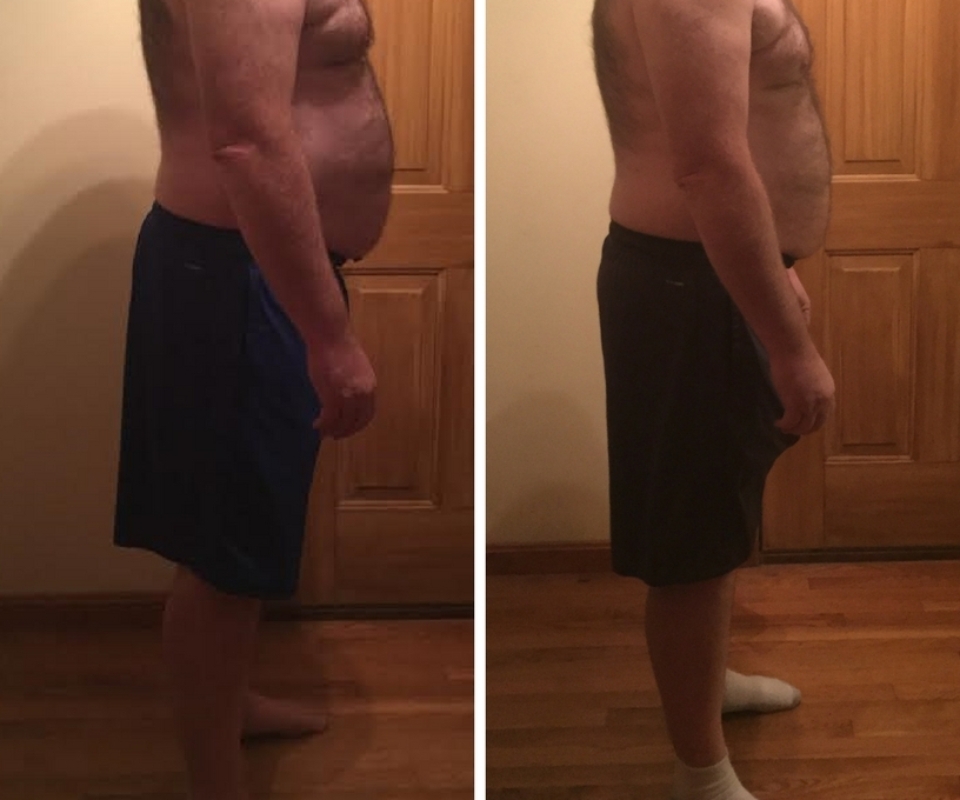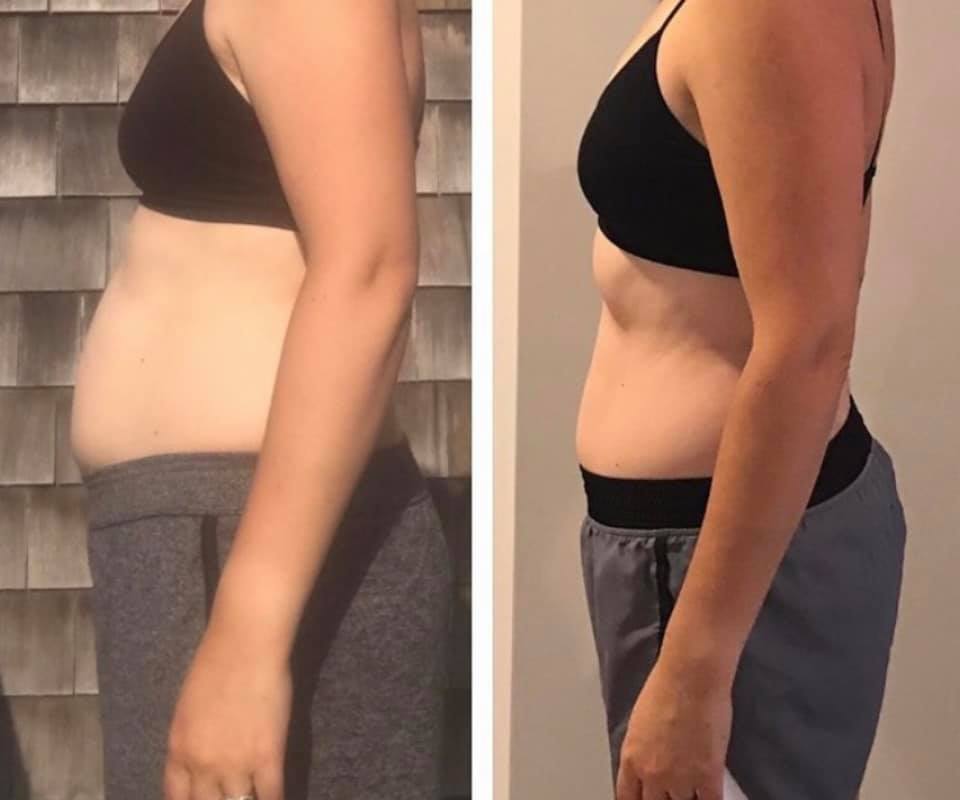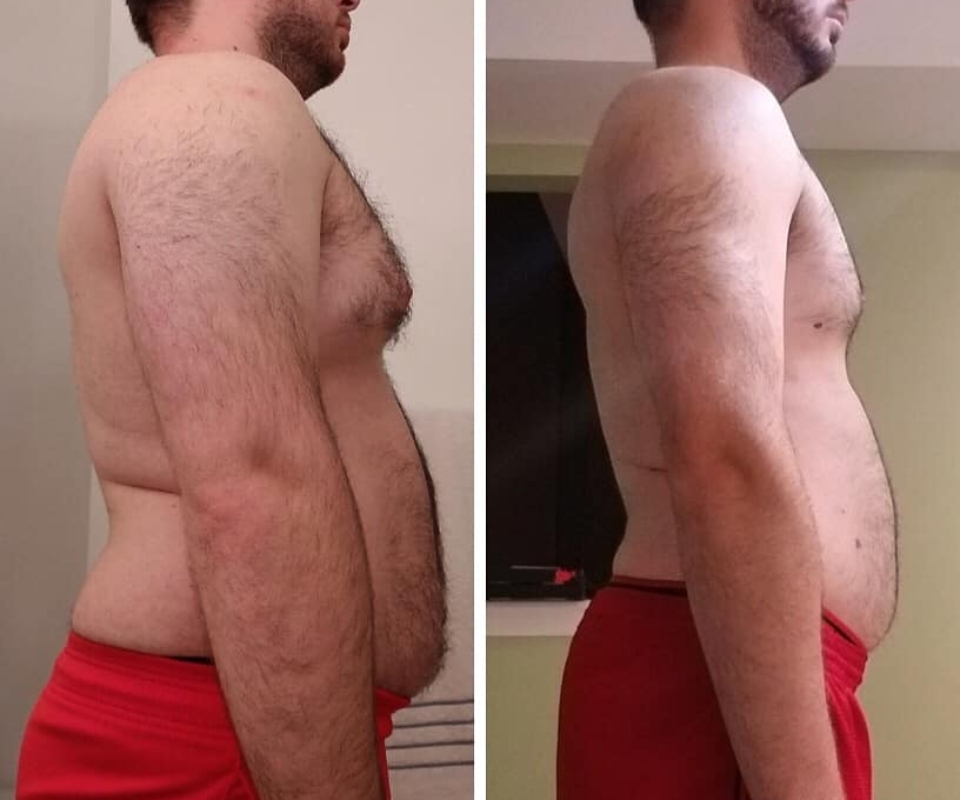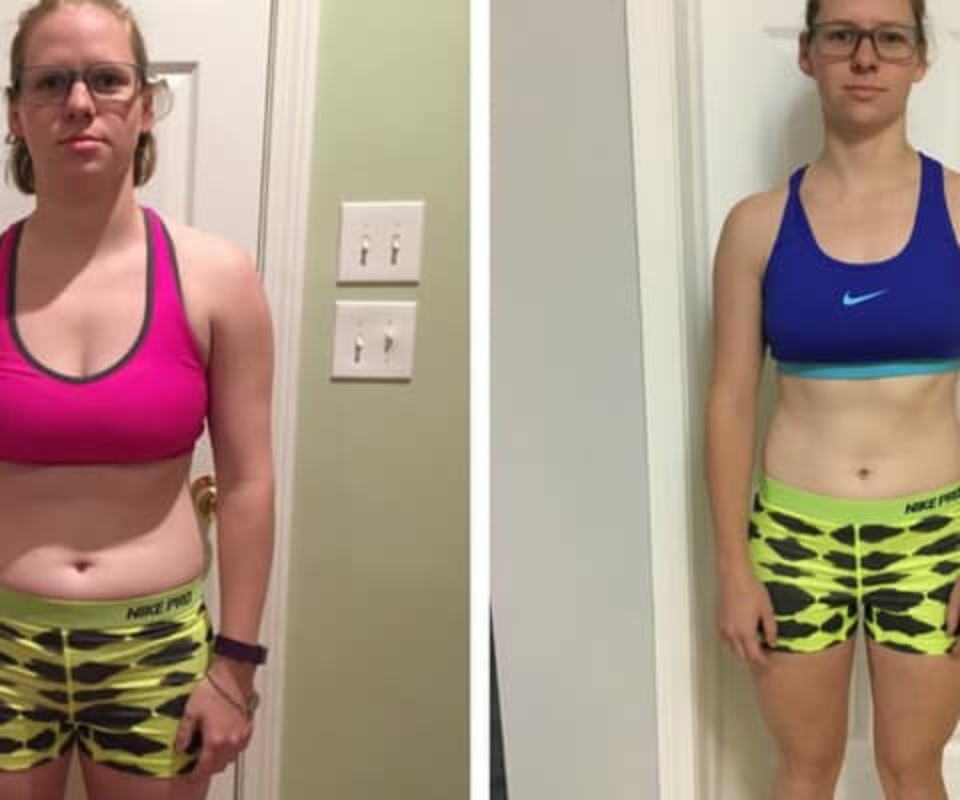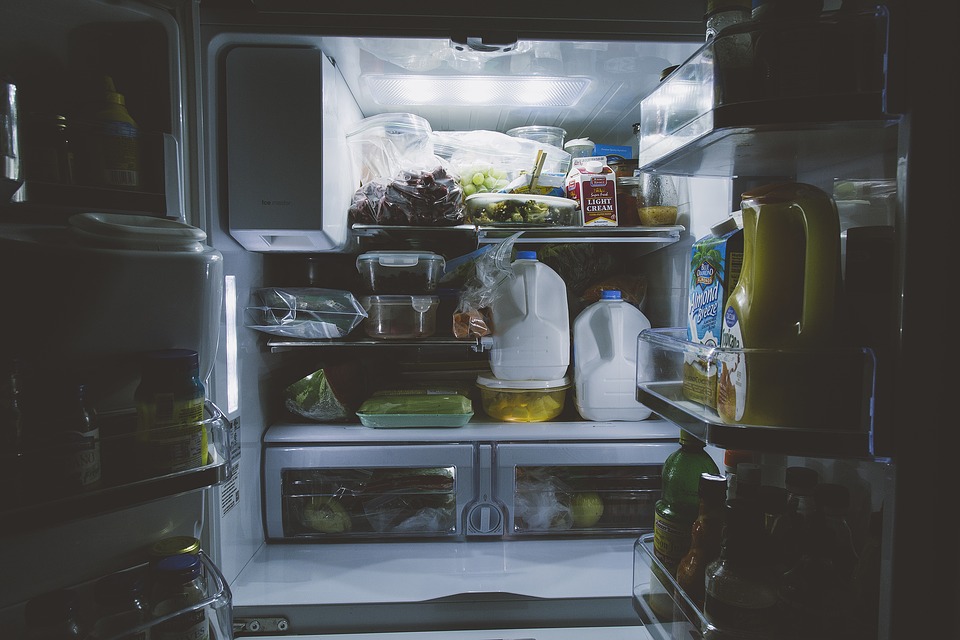My clients will be the first to tell you I’m a stickler for language. I NEVER let self-deprecating or harmful language slip through the cracks.
Because the way you talk about your body and your decisions matters more than you think. It impacts your:
- Self-confidence
- Body image
- Nutritional consistency
- Daily habits
- Likelihood of success
Even seemingly innocent phrases (I ate “bad” last night) can tarnish every one of these—and you’re about to learn how.
Here are the three biggest ways your language is (sneakily) sabotaging your transformation success:
1) By NOT separating your feelings (and behaviors) from your identity
I learned about this from my good friend and emotional healing mentor Natalie Saimeri. She made a guest appearance in my group coaching program a few years back to talk about the importance of identity separation: something most of us are horrible at (without even realizing it).
Example of NOT successfully separating your feelings and behaviors from your identity include:
- “I’m a stressball”
- “I’m a stress eater”
- “I’m SUCH an anxious person”
- “I’m a worrywart”
- “I’ve always been an all or nothing person”
- “I’m a perfectionist”
- “I can’t do moderation”
- “I’m a night owl”
- “I’m a terrible sleeper”
- “I’m a horrible cook”
- “I can’t function without coffee”
Literally none of these statements are true—and continuing to say them (mindlessly or not) is preventing you from ever progressing and leaving old habits behind.
Think about it.
You’re not a “super anxious person.” You’re a human being who experiences anxiety. The former is an identity that’s next to impossible to change. The latter is a feeling you can successfully manage. But you’ll never do this if you’re pigeonholing yourself with your language and further cementing your identity as an “anxious person.”

Journaling is one of my favorite stress and anxiety management tools
Another example: you’re not an “all or nothing person” (fitness coach Jared Hamilton came on to my podcast and ripped this concept to shreds).
You don’t quit your job after showing up late one time. You don’t drop out of school after failing one exam. You don’t get rid of your kids after snapping at them after a bad day. So why are you letting yourself off the hook nutritionally by calling yourself an “all or nothing person”?
The second you start separating your feelings (ex. anxiety and stress) and behaviors (ex. sleeping poorly or stress eating) from your identity is the second you can start working on those things and making better choices.
2) By severely harming your relationship with food
I see this happen on a daily basis and people don’t even realize it’s happening. Examples of severely harmful (albeit common) phrases include:
- “Cheat days”
- “I cheated on my diet”
- “Eating clean”
- “Eating like crap”
- “Junk food”
- “I ate so bad yesterday”
- “I can’t eat that”
- “I’m not allowed to eat that”
- “Guilt-free dessert”
It’s worth repeating that 99% of people say these with ZERO thought and are subconsciously conditioned to by mainstream media and diet culture (I’m 100% positive I’ve said and written all of these at some point—but have since learned better).
But they all make it incredibly difficult to be moderate with nutrition and truly commit to a healthier lifestyle. Let’s break down a few examples why:
1) You say you “cheated” on your diet—which implies (A) your diet was so strict you couldn’t stick to it without “cheating” and (B) you failed in some capacity. Both of which make it more likely you’ll overdo it next time around (because you’ll feel compelled to “get it all in” before returning to your usual restrictive approach).
2) You say you “ate like crap” or “really bad” over the weekend. But why? Because the foods you had weren’t overly nutrient-dense? Why is that inherently bad if you made a conscious decision to enjoy yourself (perhaps with friends and family) AND your expectations are in line with your decisions (ex. not expecting to lose fat at a ridiculously fast pace)?
3) You say you’re not “allowed” to eat something—which is a dead giveaway your approach to dieting needs work. Having a “do not eat” list is the nutritional equivalent of telling someone not to push the big red button. Only the big red button is all your favorite foods and normal human experiences.

One of the reasons I’m not a fan of keto is because of the extreme strictness that produces underlying deprivation
See why your language surrounding food can be surprisingly problematic? You need to start paying attention to this stuff (ASAP) if you ever want your relationship with food to improve. Some examples of modified and neutral phrases include:
- “My choices weren’t conducive to my goals”
- “I splurged over the weekend”
- “I’m CHOOSING to forgo this in favor of my long-term goals”
- “My decision-making will be better tomorrow”
- “I enjoyed some delicious food yesterday and plan on enjoying more nutrient-dense food tomorrow”
I know this seems negligibly different—but trust me when I say it matters.
3) By being incredibly vague with rationale AND game plans
I also see this on a daily basis and NEVER let it go (as my VIP Nutrition Coaching clients can attest to). Examples of vague rationale and planning include:
- “Last week got so busy”
- “Things have been hectic at home”
- “Work has been nuts!”
- “The weekend got away from me”
- “I’d like to eat healthier”
- “I’m going to eat better next week”
To be clear: each and every one of these phrases may be true. But there’s next to nothing we can do with them to move you closer to your goals. We need to get more specific:
1) Last week got busy and that’s why you made “so-so” choices? That’s understandable. But busy how? Did you get out of work late? If so: how much later than usual? What popular chains are on the way home? What menu items will you turn to next time you’re in a jam?
2) The weekend got away from you? No biggie. That happens to all of us. But specifics matter. Does that mean you splurged too much (for your goals)? Did you cave to peer pressure from your partner? Let’s go over a step-by-step script for navigating that the next time you’re in that environment.
3) You want to eat better this week? Great! How are we measuring that? When are you going to the grocery store? What days and times will you be cooking? Which meals will you be including in your plan?
While we’re on the subject… most people have been misled as to what’s healthy at the grocery store. They buy anything that says “gluten-free” or “low sugar” or “non-GMO” instead of buying the foods that are actually nutrient-dense and fat loss friendly.
Which is why I put together the One-Stop Nutrition Guide—so there’s no grey area at to what foods you should prioritize during your next trip to the store:
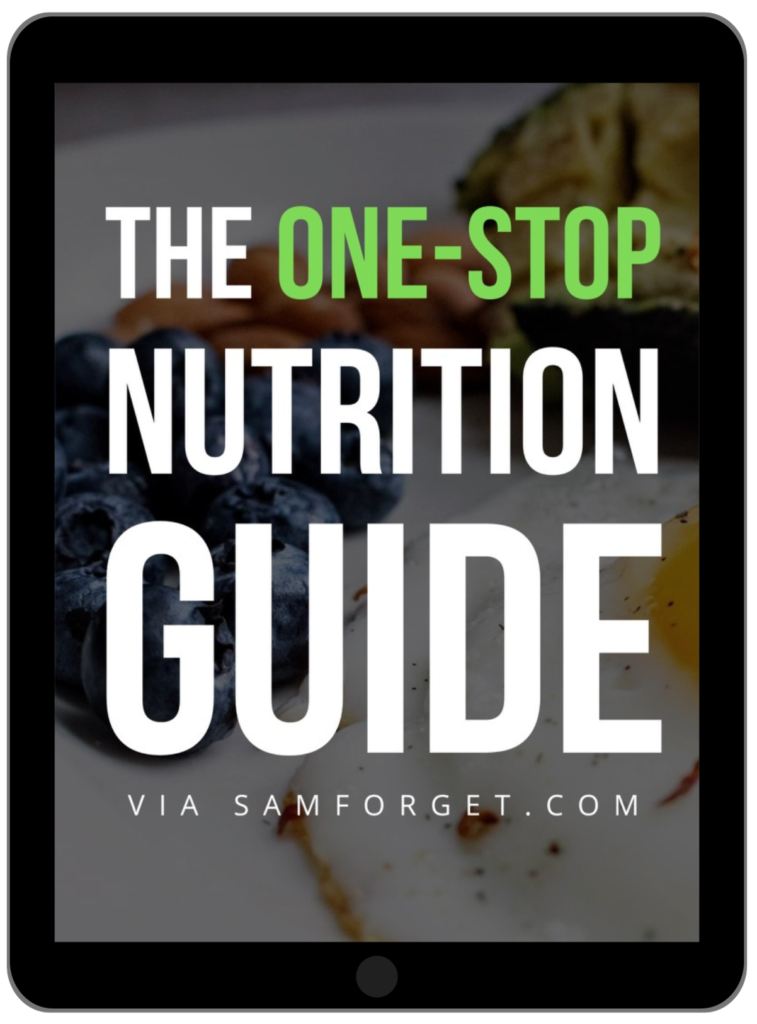
Just tell me where to send your copy:
Back to our last point: I’m sure you now see the difference between vague language and specific and productive language. People who operate in a constant state of vagueness rid themselves of the opportunity to:
- Decipher what derails them
- Set themselves up for new outcomes
- Be held accountable at the highest level
That’s why I hammer specificity in client check-ins. I want everybody crystal clear on their obstacles AND solutions so success isn’t left to chance.

Vague communication doesn’t slip through the cracks during my client check-ins
Let’s recap a few language transformations:
- You’re not an “anxious person.” You’re a person experiencing anxiety
- You’re not a “terrible sleeper.” You’re a person who WILL practice better sleep habits
- You didn’t “cheat on your diet.” You operated with moderation
- You’re not passing on an app because you “can’t” eat it. You’re doing it because you’re CHOOSING “future you” over fleeting satisfaction
- You’re “trying to eat better” and that’s great. But you’re going to do it by “going to the grocery store at 9AM on Sunday morning—then prepping chicken and lean ground beef dishes at 10AM so your dinners are done for the week”
- Last week “got away from you” and that happens to everybody. But you’re going to stop at Chipotle and order a double steak bowl the next time work gets out more than 30+ minutes late
This list could be much lengthier—but you get the idea. Your language could be single-handedly holding you back if you don’t pay attention to it—especially when you:
- Don’t separate your feelings and behaviors from your identity
- Tarnish your relationship with food and normal human experiences
- Let yourself off the hook from making better decisions by using vague language and phrases
Let me know if you’d like to make working on this a priority. I keep a very close eye on VIP Nutrition Coaching client’s language to make sure they’re not sneakily sabotaging their own transformation success. Then they get results like this:
I’d love to help you do the same.


